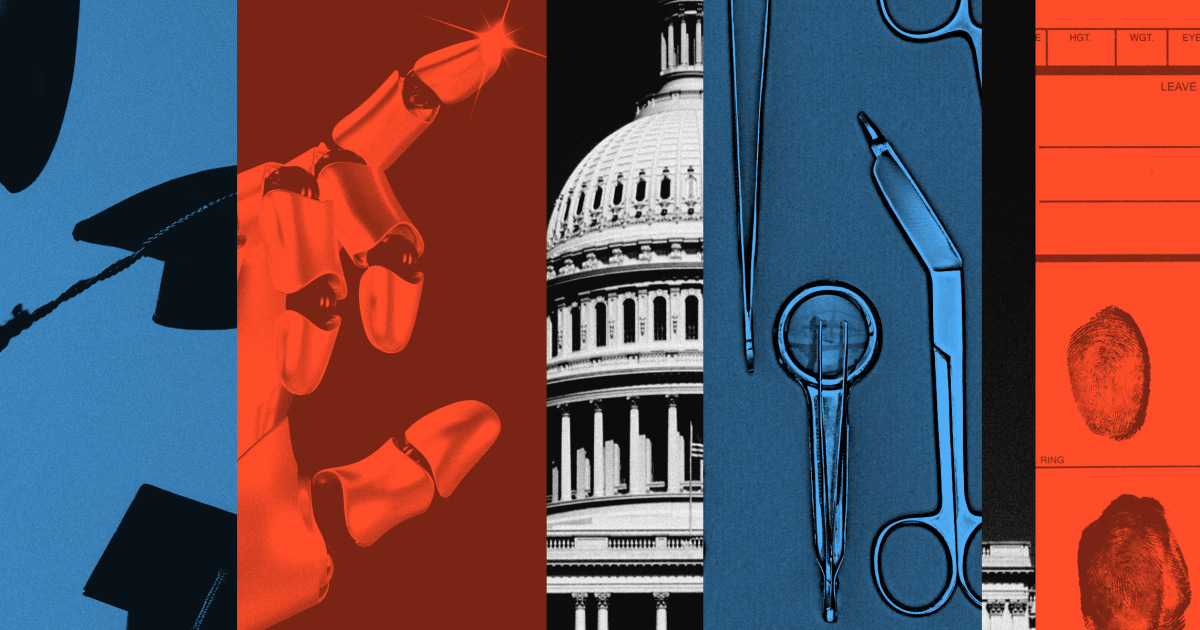AI🌪️Thursday in Focus: OpenAI's Delay, Boiling Tech Breakthroughs, and 2025's Game-Changing Laws!"
1. OpenAI misses its 2025 opt-out tool deadline.
2. Silicon Valley silences the 2024 AI doom narrative.
3. Boiling tech unlocks energy & space potential.
4. 2025 laws: AI rules, legacy admissions & trans healthcare.
Get more in insights below! 🤗
The world of AI and technology continues to evolve at lightning speed, shaping everything from global policies to groundbreaking innovations. OpenAI is under scrutiny for delaying its promised opt-out tool for 2025, while Silicon Valley has reshaped the conversation around AI doom narratives. On the innovation front, boiling technology is unlocking incredible potential for energy and space exploration. Meanwhile, 2025 is ushering in transformative laws, including AI safeguards, legacy admissions reforms, and advancements in transgender healthcare. Dive into these stories and discover how AI and tech are driving change across industries and society.
1. OpenAI misses its 2025 opt-out tool deadline.
OpenAI’s Media Manager, a tool promised in May to help creators manage how their works are used in AI training, has yet to be released. Designed to identify copyrighted content and allow creators to opt out, the tool was meant to address legal challenges and creator concerns. However, critics argue it shifts the burden onto creators, with many unaware of its existence. Legal experts question its effectiveness in navigating complex IP laws, while creators fear mass exploitation of their works. OpenAI, facing lawsuits over unauthorized training, has offered no timeline for Media Manager’s launch, raising doubts about its commitment.

2. Silicon Valley silences the 2024 AI doom narrative.
The 2024 debate on AI safety took center stage as concerns about catastrophic risks clashed with Silicon Valley's push for rapid innovation. While warnings about AI extinction risks gained traction in 2023, tech giants countered with optimism, prioritizing profits and competition over regulation. Efforts like California’s SB 1047, aimed at addressing long-term AI risks, faced intense opposition, including claims of misinformation campaigns by venture capitalists. Despite setbacks, policymakers hint at renewed attempts in 2025 to tackle AI risks. Meanwhile, critics argue that current AI is "tremendously safe," spotlighting the growing divide between safety advocates and proponents of unregulated growth.

3. Boiling tech unlocks energy & space potential.
Professor Matteo Bucci’s research focuses on improving heat transfer efficiency, especially in complex systems like nuclear reactors. His work sheds new light on the boiling process, crucial for energy production, electronics cooling, and water desalination. Bucci's lab developed advanced diagnostic techniques, offering unprecedented insight into nuclear reactor conditions and the "boiling crisis." His research also explores two-phase immersion cooling, which significantly reduces energy waste in data centers. Bucci integrates AI into his work, aiming to accelerate research and improve understanding of phenomena that can’t yet be observed, pushing the boundaries of thermal science and energy efficiency.

4. 2025 laws: AI rules, legacy admissions & trans healthcare.
In 2025, new laws will impact various sectors, including AI regulation, data privacy, and consumer protection. Illinois will regulate AI, making it illegal to distribute digital replicas without consent, and California will require consent for AI use in Hollywood. Data privacy laws will take effect in several states, granting consumers more transparency over personal data. California will ban legacy admissions in private colleges to ensure fairness in college admissions, and New Hampshire will restrict gender-transition surgeries for minors. Additionally, starting in May, travelers will need Real ID-compliant IDs for domestic flights and federal facility access.

From OpenAI’s challenges to groundbreaking tech innovations and transformative 2025 laws, it’s clear that AI and technology are reshaping our world in profound ways. As we navigate these advancements, the balance between innovation and responsibility becomes more crucial than ever. Stay informed, stay curious, and stay engaged with the stories that matter most. Together, let’s explore what’s next!









